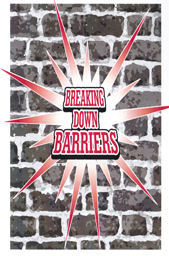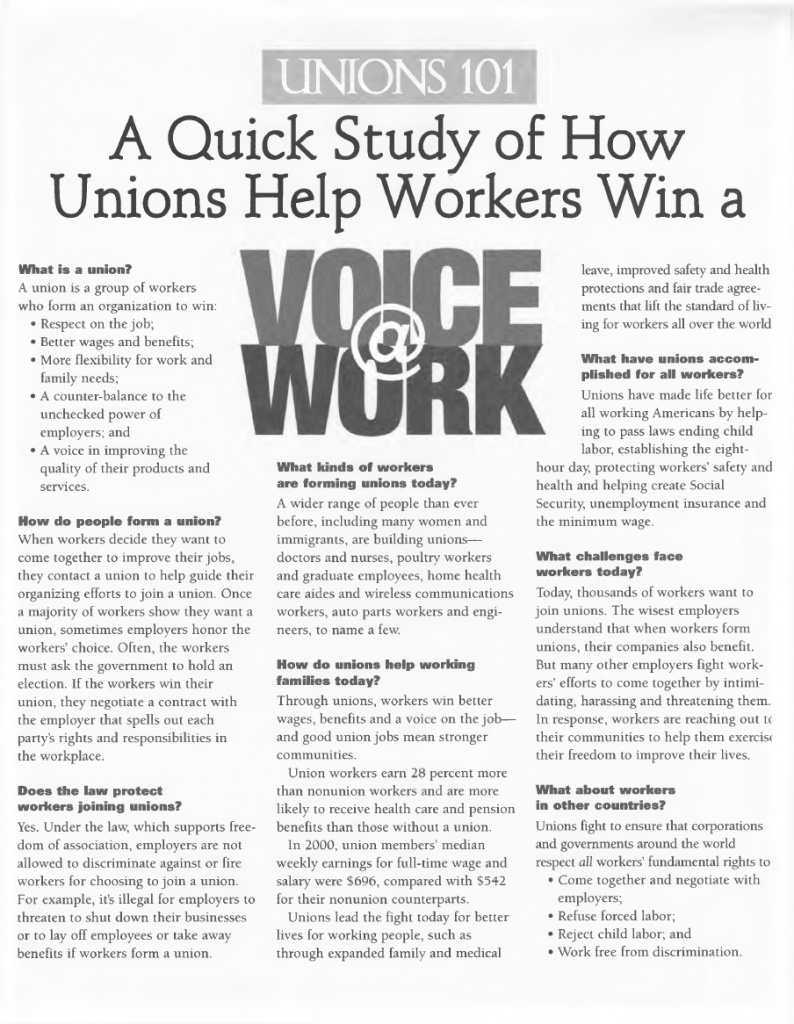Grievance Information
"Time Lines"
Many times when employees have issues or concerns that may be grievances, they forget one very important aspect of the grievance process, "Time Lines." If an employee wants to file a grievance, they have only 30 days from the date of offense in which to file it. This is part of the grievance procedure under our current state contract. Failure to submit a grievance in a timely manner will cause the grievance to be considered untimely, and therefore not responded to.
Also there are time lines which must be adhered to for an employee to appeal an unsatisfactory 1st step decision. An employee has only 10 working days from receipt of the 1st step decision in which to appeal to the 2nd step. There is also a time line to appeal an unsatisfactory 2nd step decision. That time frame is 15 working days.
Time lines also apply to appeal an annual rating. An employee has only 15 days from date of receipt on an unsatisfactory rating.
Time lines are also important when a person files an out of title grievance. Under our current contract if an out of title grievance is sustained the grievant receives payment for only 15 days prior to the filing of the grievance. In the past, many employees have lost months of back pay because they waited to file an out of title grievance.
A Resource Guide
MESSAGE FROM THE PRESIDENT
CSEA is committed to seeking social justice and basic human dignity for every member.
This commitment is personified in our Mission Statement which upholds such principles as
- Honesty
- Inclusiveness,
- Full participation
- Respect
- Diversity
- Open communications
- Accountability and
- Fiscal responsibility
This brochure is written in that spirit as a resource to breaking down barriers.
In solidarity,
Danny Donohue
President
CSEA Resources to Breaking Down Barriers
Special Human Rights Committee

Janet Yentrano-Torres, Chair
W: (212) 480-6774
H: (718) 762-4646
Joseph McMullen, Officer Liaison
Kathy Cahalan, Staff Advisor
Advisory Committee on Minority Issues
It is the role of the advisory committee to make recommendations to the CSEA president pertaining to issues affecting minority members:
To address discrimination in all forms, work with Civil Rights and minority organization, to advance our common goal of protecting civil, human and constitutional rights; and
To fight discrimination within the Union and without, and stress the importance of building unity among diverse groups.
Rudy Bruce, Chair
W:(516)571-2919
Toll Free (800) 342-4146
Denise Berkley, Officer Liaison
Sharon Lovelady-Hall , Staff Liaison
AFL-CIO Constituency Groups
Labor's bridge to diverse communities creates and strengthens partnerships to enhance the standard of living for all workers and their families. The groups also ensure the union movement hears and responds to the concerns of the communities they represent.
Coalition of Black Trade Unionists (CBTU)
The Coalition was founded in 1972 to bring more blacks into the labor movement and improve the social-economic level of minorities while strengthening unionism.
AFSCME Secretary-Treasurer William Lucy is CBTU President.
Many CSEA members attend the annual CBTU Convention which is held over the Memorial Day weekend with the convention's first event usually scheduled Thursday at 9 a.m. Expenses to attend may be paid out of local/unit funds although such funds cannot be used for individual memberships.
New York State is part of CBTU Region I which also includes New Jersey, Connecticut, Massachusetts and Ontario, Canada.
There are currently six different CBTU Chapters in the state: Albany, Buffalo, Long Island, New York, Rochester and Syracuse.
For membership information:
National Office (202) 429-1203
www.cbtu.org
Labor Council for Latin American Advancement
LCLAA is the official Latino constituency group of the AFL-CIO. LCLAA is the first national organization to represent the views of not only Latino trade unionists but all Latino workers seeking justice at the workplace.
LCLAA was founded in 1972 by local Latino trade union committees to promote participation by Hispanic trade unionists in a more responsive labor movement. LCLAA builds political empowerment of the Latino family, supports economic and social justice for all workers, and promotes greater cultural diversity at the workplace.
Expenses to attend the annual National Membership Meeting may be paid out of local/unit funds although such funds cannot be used for individual memberships.
For more information:
(202) 508-6919
www.lclaa.org
Coalition of Labor Union Women
CLUW is America's only national organization for union women. Formed in 1974, CLUW is a nonpartisan organization within the union movement.
The primary mission of CLUW is to unify all union women in a viable organization to determine our common problems and concerns and to develop action programs within the framework of our unions to deal effectively with our objectives.
There are five chapters in New York State:
Greater Western Chapter, Long Island Chapter, New York City Chapter, Northeastern Chapter and Tri County New York Chapter.
For more information:
(202) 508-6969
www.cluw.org
Asian Pacific American Labor Alliance
APALA is a national membership organization that unites the labor movement and the Asian and Pacific Islander community by mobilizing the API community in support of worker organizing and political action, advocating for worker rights, civil rights, and immigrant rights, and building long term labor community alliances.
For more information:
(202) 508-3733
www.apalanet.org
Pride at Work
Pride At Work is the lesbian, gay, bisexual and transgender (LGBT) Constituency Group or the AFL-CIO. Its purpose is to mobilize mutual support between the organized Labor Movement and the LGBT Community. There are two chapters in New York State: Metro (New York City) and Albany (Capital District).
For more information:
www.prideatwork.org
A. Philip Randolph Institute
The senior constituency group of the AFL-CIO
In 1965, APRI was founded to fight for racial equality and economic justice.It serves as a bridge between labor and the black community and seeks structural changes through the American democratic process. Members are involved in political and community education, lobbying, legislative action and labor support activities.
For more information:
(202) 508 3710
www.apn.org
info@apri.org
Other Resources to Breaking Down Barriers
New York State Black, Puerto Rican, Hispanic and Asian Legislative Caucus
Since 1966 the caucus has systematically negotiated more power in the Legislature to advocate for their constituents. The caucus has sought to effectively create political alliances within the Legislature to ensure that people of color, the working class and the poor have a real voice in state government.
Many CSEA members attend the caucus's annual legislative weekend in Albany the third weekend in February. Expenses to attend may be paid out of local/unit funds.
For more information:
(518) 455-5347
www.assembly.state.ny.us
National Coalition Building Institute
NCBI is a nonprofit leadership training organization based in Washington, D.C. Since 1984, NCBI has been working to eliminate prejudice and intergroup conflict in communities.
NCBI's proactive approach begins with a corps of community leaders who are taught effective bridge-building skills to combat intergroup conflicts. The local leadership team embodies all sectors of the community including labor union leaders. These community leaders work together as a resource team, offering prevention-oriented programs to deal with prejudice and intergroup tensions. Using NCBI tools for working through tough polarizing intergroup issues, the leadership team is available to intervene when specific intergroup conflicts arise.
NCBI trains leadership teams in a variety of settings.
For more information:
(202) 785-9400
www.ncbi.org
National Association for the Advancement of Colored People
The mission of the NAACP is to ensure the political, educational, social and economic equality of rights of all persons and to eliminate racial hatred and racial discrimination.
For more information:
Toll Free: (877) NAACP-98
www.naacp.org
Mission Statement
A working men and women - every one and everywhere - we are our greatest resource.
We organize and represent workers to ensure our voice is heard, our place at the table is kept and the American dream is ours in the 21st Century.
As a labor union, we hold these values as our working principles:
- Honesty: We are honest with ourselves and each other.
- Inclusiveness: Every group, every idea is welcomed.
- Full participation: We encourage and expect full participation in all union matters.
- Respect: We respect each other and honor our differences.
- Diversity: We celebrate our diversity and use it to strengthen us.
- Open Communications: We listen and provide for open communication across all parts of our union and in all directions.
- Accountability: We are accountable for our actions and decisions.
- Fiscal Responsibility: We conduct our business in a fiscally sound manner.
- As a labor union, we are committed to union democracy and llie follow these values with integnty.





